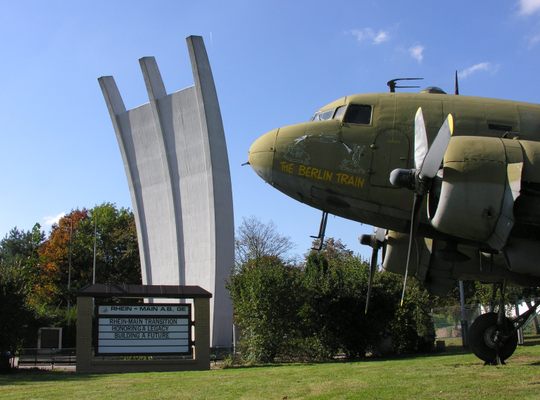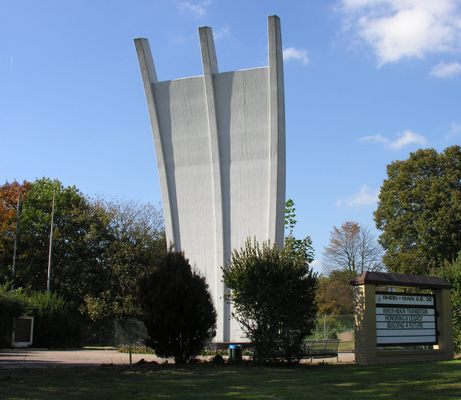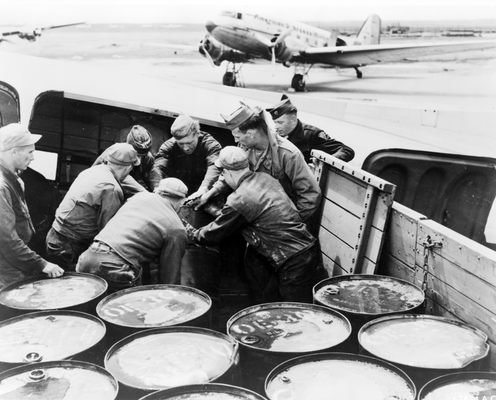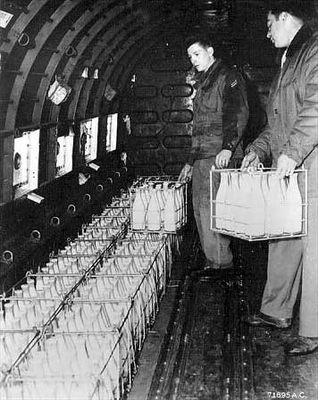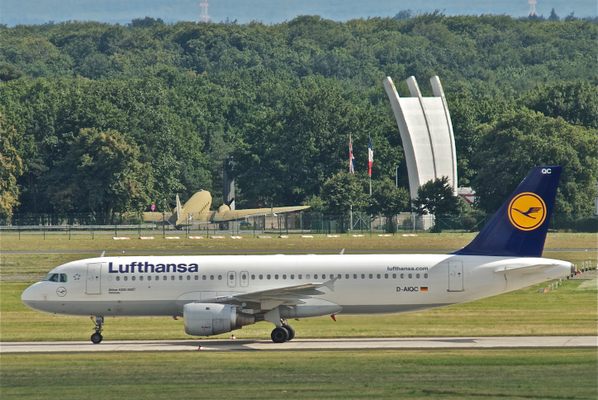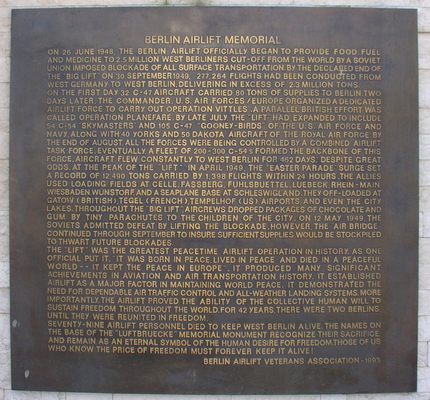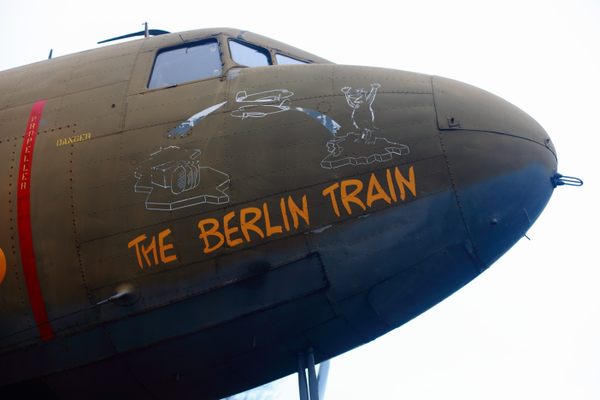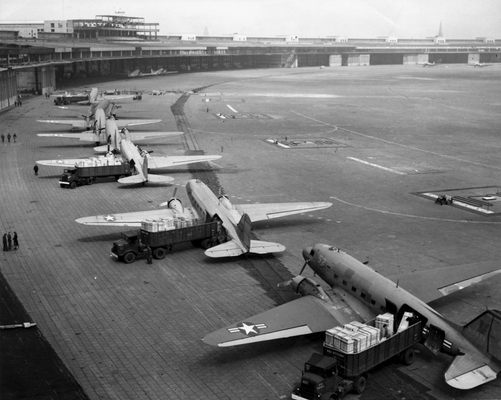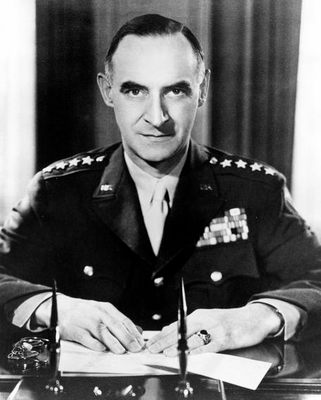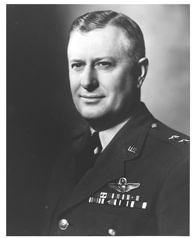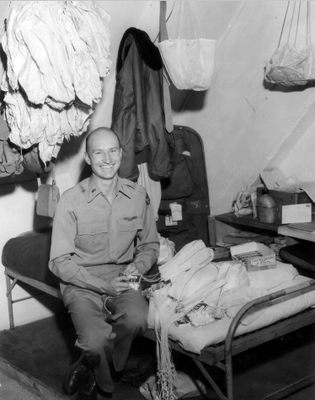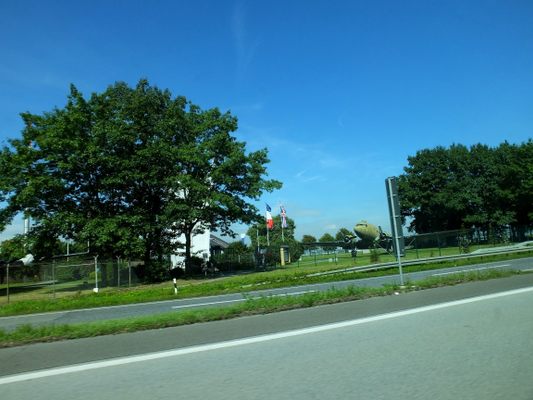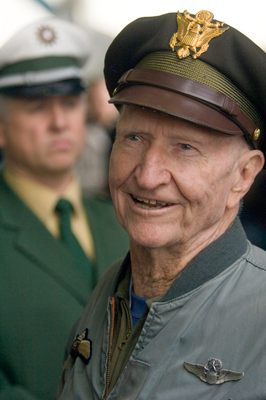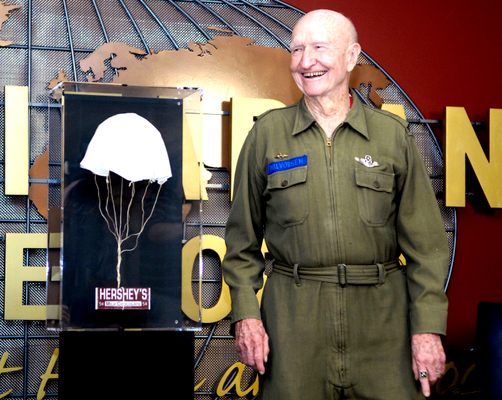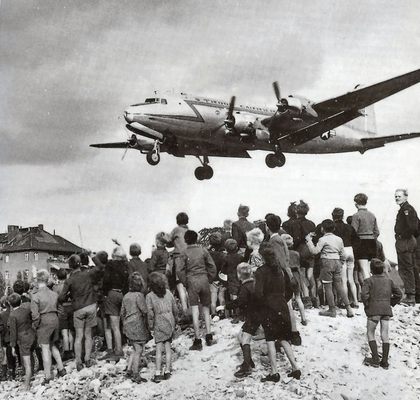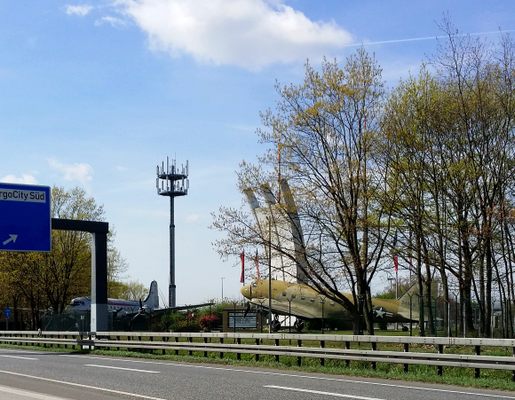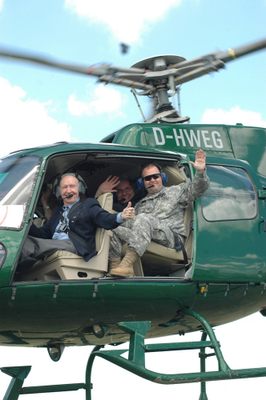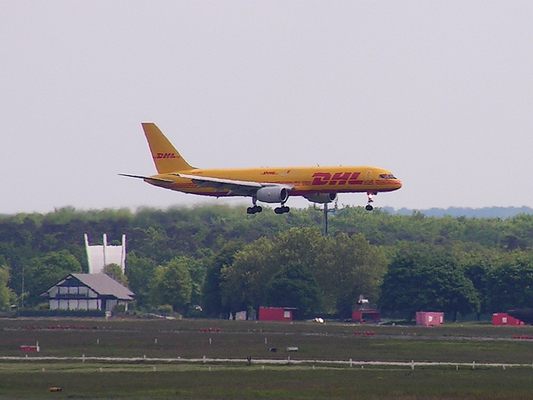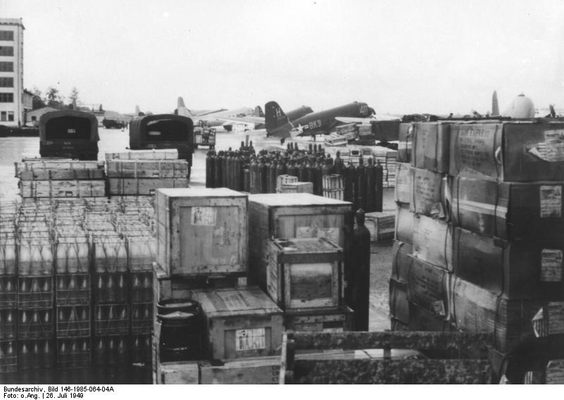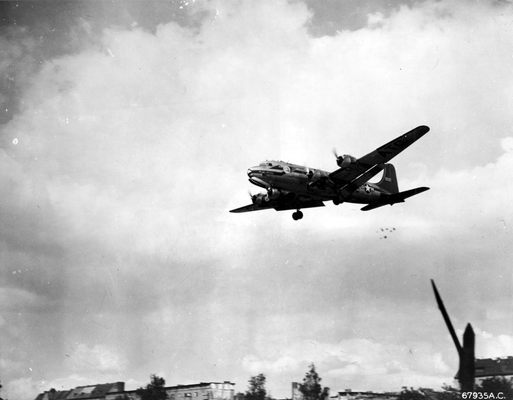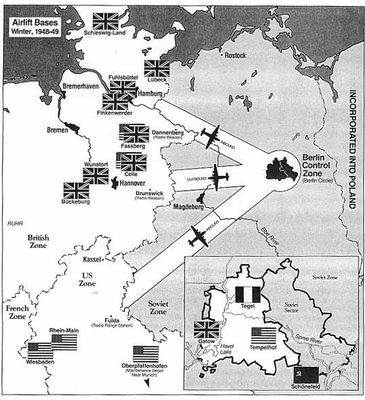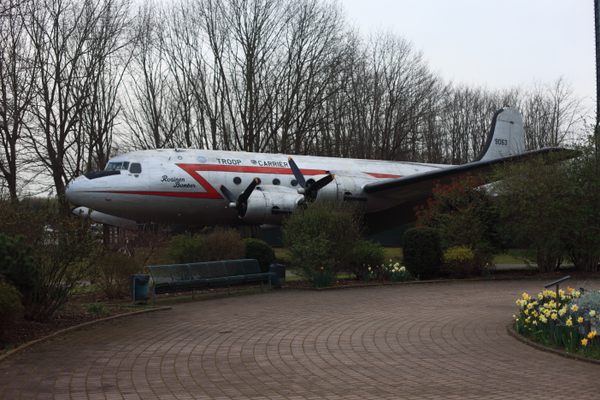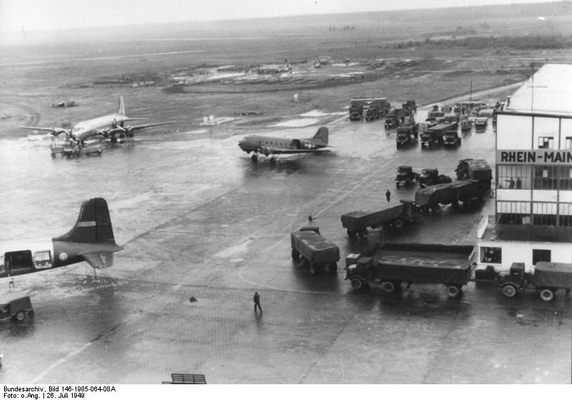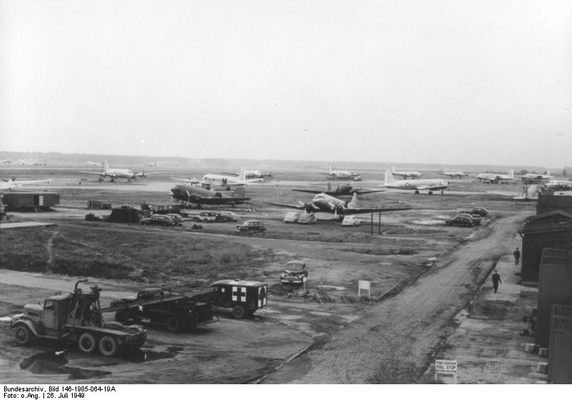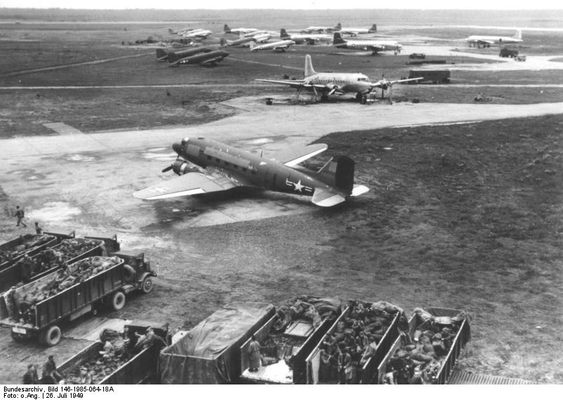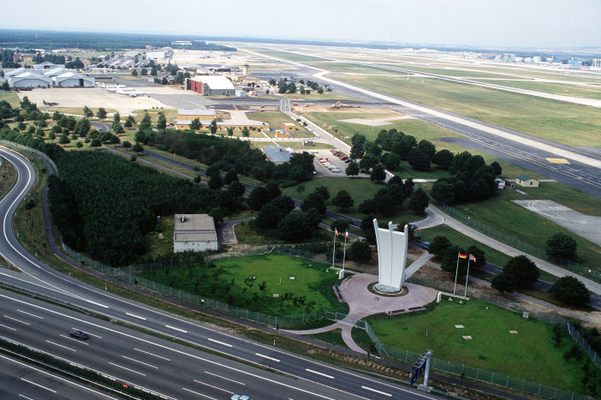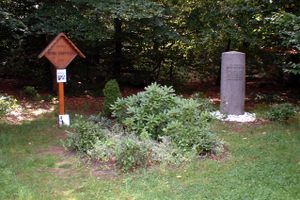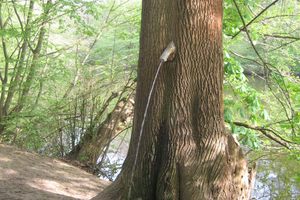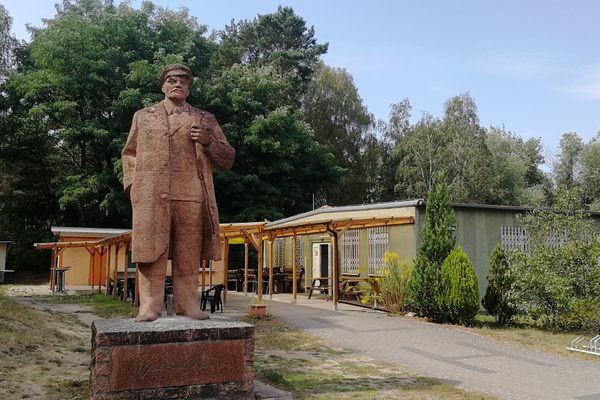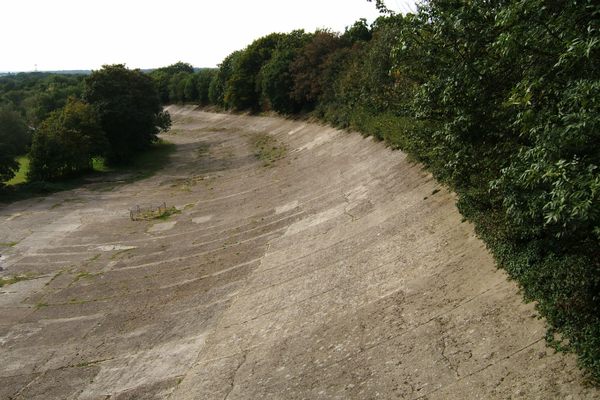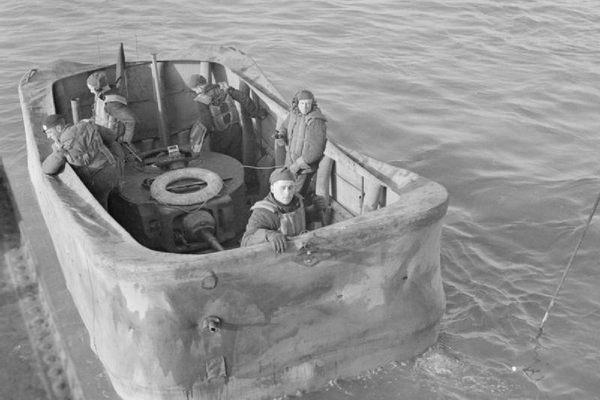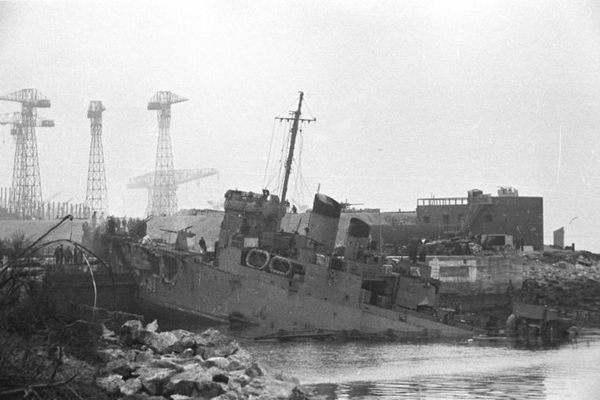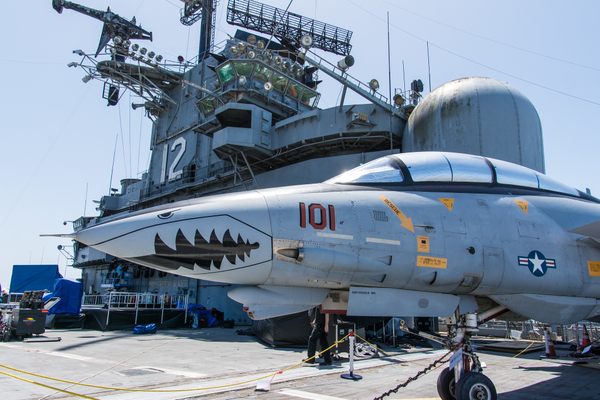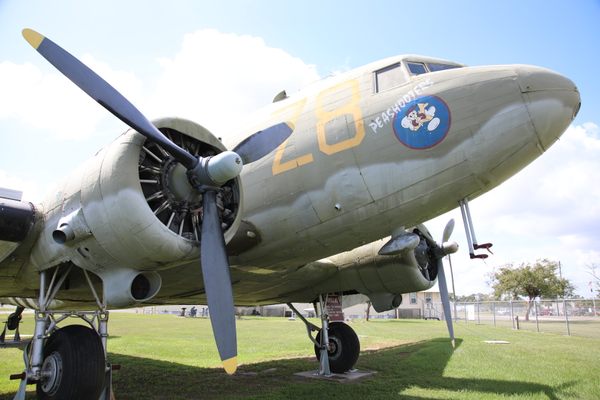About
During the Berlin Blockade in 1948, the Soviets blocked off transport and electricity to West Berlin and imposed a new currency, leaving the millions of Germans and Allied soldiers living there at the time without access to food, medication, heating material and energy. This attempted takeover of the West Berlin sector—at the time, an island in the middle of Soviet-occupied Germany—is considered one of the early events of the rising tensions of the Cold War.
As a solution, the Allies came up with the idea of the Luftbrücke, the Berlin Airlift. In record time, just 90 days, the French Forces built the Berlin Tempelhof airport, which became the landing airport for the airlift. Using the three runways the Russians had guaranteed the Allies after the war, the airlift provided West Berlin with over 2 million tons of goods between June 24, 1948 and September 30, 1949—including 23 tons of candy for the local children, as a particularly sweet side operation that earned American cargo planes their nickname.
One of the pilots of the cargo planes that transported goods to West Berlin was Colonel Gail Halvorsen, who was stationed on Rhein-Main Airbase in Frankfort at the time. After one of his flights, Halvorsen went to explore the surrounding area of the airport, and met about 30 German children outside the fence watching the planes landing and taking off. He started to talk to them and gave them two strips of gum. When he saw how the children carefully broke the gum in little pieces to share it, he felt so sorry that he did not have more and told the children to watch out for him the next day, and he would drop them more candy. When the children asked him how they would know it is him, he told them he would “wiggle” his wings.
During the next night, Halvorsen and his crew members collected their candy rations and packed them. The packs were heavy and the men feared that it would hurt the children, so they crafted little parachutes from handkerchiefs and connected them to the packs of candy. True to his word on the next day, when he flew one of his regular flights, he passed the children “wiggled” his wings and dropped the candy, earning him the name Onkel Wackelflügel, or Uncle Wiggly Wings. Halvorsen and his crew continued the candy drops, and each time they arrived at Tempelhof-Airport, the group of waiting children grew.
When General Tunner got wind of the candy “operation,” he liked the idea, and "Operation Little Vittles” soon expanded to the whole squadron. Women and school classes in the U.S. got together and sewed small parachutes; others donated money or candy. Operation Little Vittles lasted from September 1948 to May 1949 and provided the children of West Berlin with more than 23 tons of candy coming down to them on more than 250,000 little parachutes. Because the candy rations included little packs of raisins, which the children seemed to take to the most, up to this day American cargo aircrafts are called Rosinenbomber (Raisin Bomber), or the Americanized version, Candy Bomber.
Unfortunately, the airlift also had its dark side. More than 120 accidents occurred, causing 101 fatalities. The names of those who lost their lives to, yet again, bring freedom to West Berlin, are engraved in the base of the Luftbrückendenkmal monument, erected at the now abandoned Rhein-Main Airbase.
The monument is flanked by two cargo planes, a C-54 and a Douglas C-47 Dakota, bearing the painted name Rosinenbomber on their sides. When the U.S. Air Force closed the airbase in October 2008, as a final reminder of the airlift, the honor of the last takeoff from the base was given to a Rosinenbomer, heading to Berlin-Tempelhof 342 miles away.
Related Tags
Know Before You Go
The "Luftbrückendenkmal" can be easily reached by foot from Terminal 2 of Frankfurt Airport. It is a walk of about 1 mile.
By car it can be reached from the Highway, the Autobahn A5, using the exit "Zeppelinheim" and following the signs.
The monument can be seen while passing by on the A5 and during landing and take-off at Frankfurt airport.
Published
December 22, 2016
